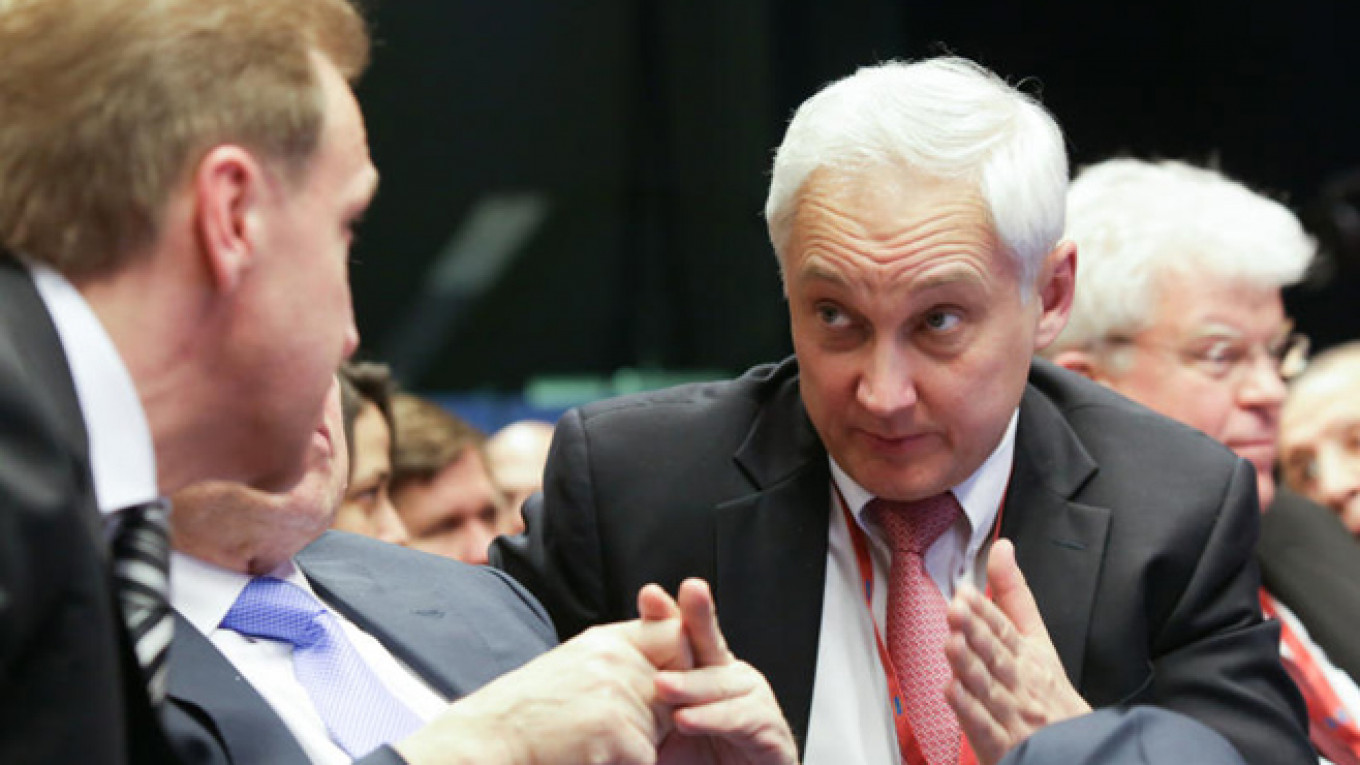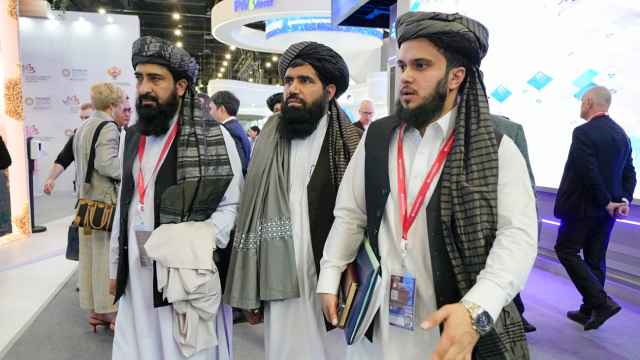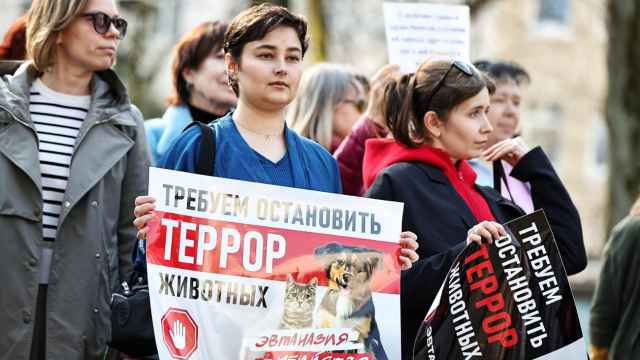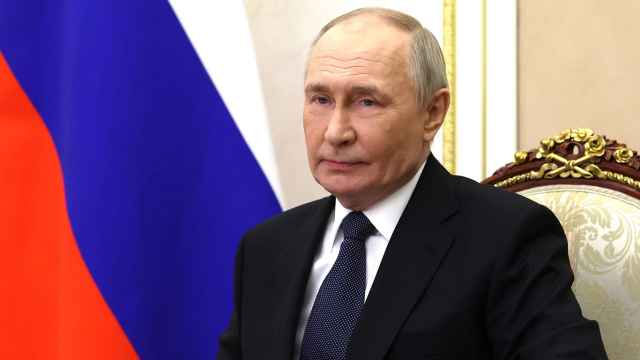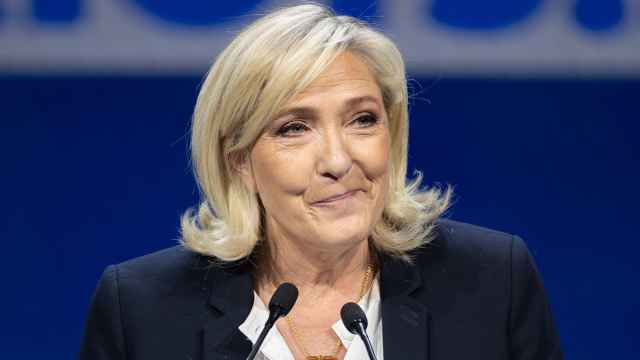Stuck in a second year of recession and facing a long period of economic stagnation, Russian officials are searching hard for ways to stimulate growth.
On May 25, a presidential economic council will convene for the first time in three years. According to presidential aide Andrei Belousov, it aims to achieve stable 4 percent annual growth before the end of the decade.
If that target is missed, Belousov warned, Russia's tax base will stagnate and its infrastructure will degrade. Moreover, he told the Vedomosti newspaper, "without new investment, social infrastructure will degenerate and social dissatisfaction will grow."
Russia's economy has suffered from the collapse of oil prices in 2014. Analysts say the country needs deep structural reform to avoid a lengthy period of stagnation. The council meeting will discuss a cocktail of measures to locate new sources of growth. Putin will listen to Economic Development Minister Alexei Ulyukayev and hear a report by the Center for Strategic Research, a think tank recently headed by respected former finance minister Alexei Kudrin.
"All participants agree that the growth target can be hit after 2018, and some even say sooner," Belousov told Vedomosti.
One proposal to be heard at the council a tax break on capital investment, which was proposed by Putin last year. Increased state funding for infrastructure projects and exports is also on the list of options, as well as programs to subsidized lending to business.
Another measure is wage restraint. A new economic outlook written by the Economic Development Ministry and obtained by Kommersant, a newspaper, proposes to hold down salaries for the next two years to stimulate growth. Any government move to limit public sector pay would be echoed by private employers, said Valery Mironov, an economist at Moscow's Higher School of Economics.
This would potentially increase company profits, improve the competitiveness of Russian exports and allow the government to save money. But would come at a price. Real incomes have been shrinking more than a year. The ministry said its move would see wages fall a further 2.8 percent this year and 0.3 percent in 2017 in real terms. It said the value of pensions would decrease by 4.8 percent this year and by 2 percent in 2017.
That would raise poverty levels, already their highest in nearly a decade. It may also worsen a slump in consumer spending that could nullify any positive effect on growth. "Such measures are not humane and even harmful to the economy," Sergei Afontsev, economist at the Moscow State Institute of International Relations.
Meanwhile, small business, which are the engine of many Western economies, are having a tough time. Last year saw criminal investigations into businesses rise to their highest level in half a decade, according to a report prepared by Russia's business ombudsmen, Boris Titov and seen by the RBC news agency.
Such investigations are often a sham used to dismantle and redistribute businesses. The report said the number of tax probes increased 62 percent least year, while the conviction rate fell 15 percent.
Sergei Afontsev, an economist at the Moscow State Institute of International Relations, says the flurry of ideas around the presidential council meeting has much to do with conjuring faster growth in time for presidential elections in 2018, when Putin could seek a fourth term.
Four percent growth should be possible, he says, but "the methods offered so far don't offer any cause for enthusiasm."
Contact the author at a.bazenkova@imedia.ru. Follow the author on Twitter at @a_bazenkova.
A Message from The Moscow Times:
Dear readers,
We are facing unprecedented challenges. Russia's Prosecutor General's Office has designated The Moscow Times as an "undesirable" organization, criminalizing our work and putting our staff at risk of prosecution. This follows our earlier unjust labeling as a "foreign agent."
These actions are direct attempts to silence independent journalism in Russia. The authorities claim our work "discredits the decisions of the Russian leadership." We see things differently: we strive to provide accurate, unbiased reporting on Russia.
We, the journalists of The Moscow Times, refuse to be silenced. But to continue our work, we need your help.
Your support, no matter how small, makes a world of difference. If you can, please support us monthly starting from just $2. It's quick to set up, and every contribution makes a significant impact.
By supporting The Moscow Times, you're defending open, independent journalism in the face of repression. Thank you for standing with us.
Remind me later.


